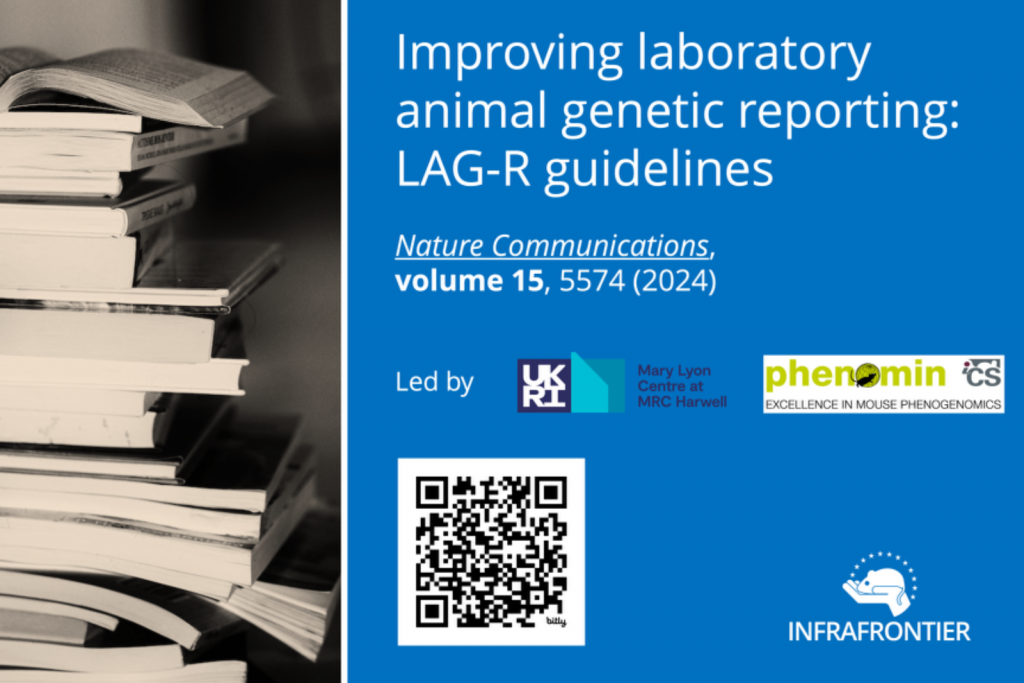Improving Laboratory Animal Genetic Reporting: LAG-R Guidelines
New publication by MRC Harwell and ICS in collaboration with the INFRAFRONTIER Consortium and colleagues
This work presents the Laboratory Animal Genetic Reporting (LAG-R) framework, a collection of guidelines to help the biomedical research community to overcome the reproducibility challenges faced in animal studies. These guidelines aim to enhance the transparency and completeness of genetic information reported in scientific publications involving laboratory animals.
The LAG-R framework proposes standardised documentation of animals’ genotype to ensure that essential details are available for replication and appropriate model use. While verifying complete genetic compositions may be impractical, improved reporting and validation efforts are crucial for enhancing the reliability of research. The standardisation provided by LAG-R is expected to enhance reproducibility, peer review, and overall scientific rigor.
The LAG-R guidelines address reproducibility concerns by standardising information about animal models in scientific reports, which is crucial due to the increasing diversity of laboratory animals and genetic alteration methods. While complete validation of genetic composition is unrealistic, improved reporting can enhance the reliability of animal experiments. Achieving this requires community consensus, greater genetic expertise, and investment in funding. The success of LAG-R only relies on the commitment of scientists, funding bodies, journals, reviewers, and editors.
Original publication:
Teboul L, Amos-Landgraf J, Benavides F et al. Improving laboratory animal genetic reporting: LAG-R guidelines. Nature communications (2024). DOI: 0.1038/s41467-024-49439-y
